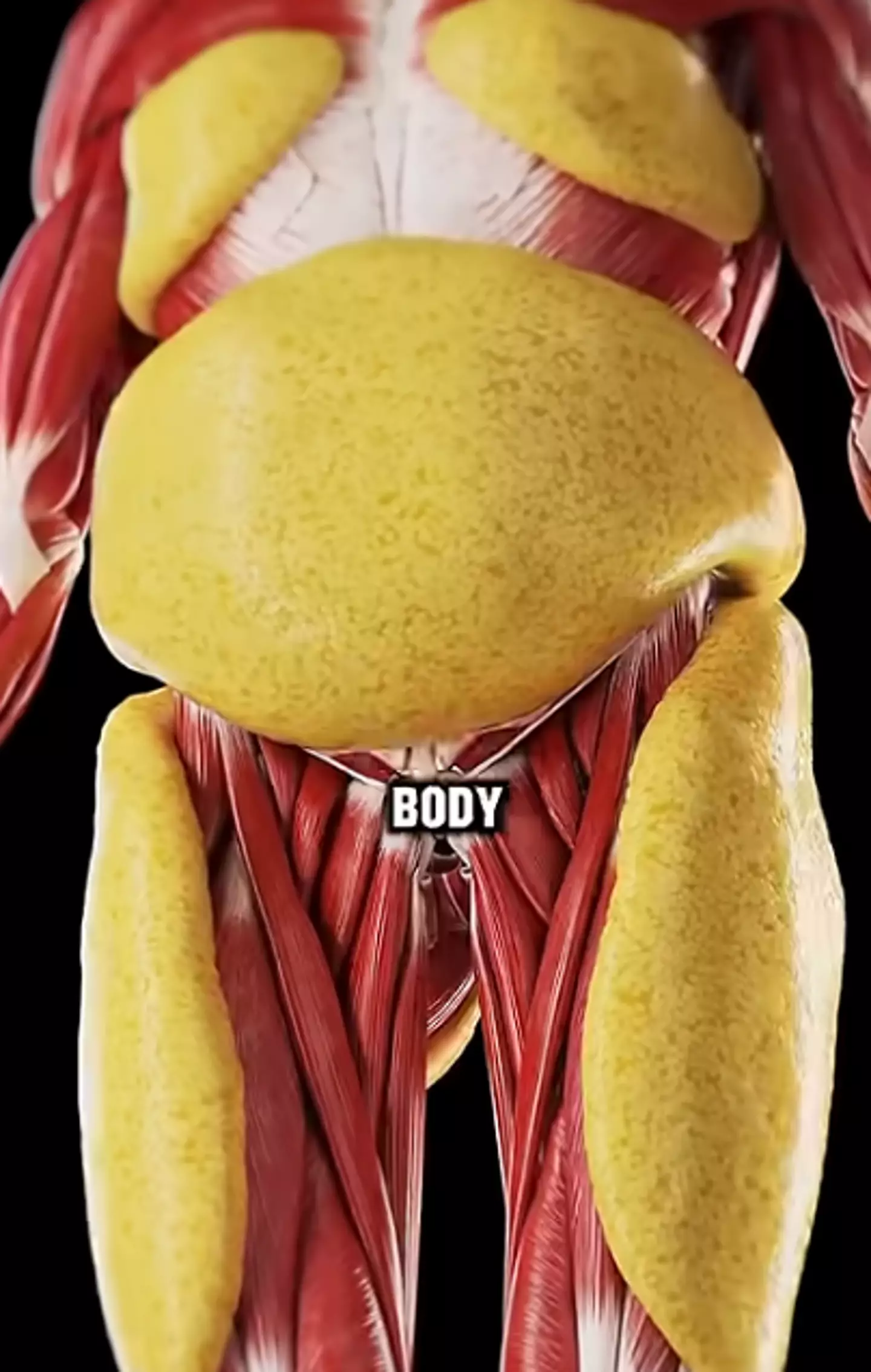
A simulation has revealed that the human body has a mega transformational change when you stop eating sugar for two weeks.
Sugar is considered a main perpetrator behind the obesity crisis in the US, and you don't need me to tell you that excess consumption of the sweet stuff isn't good for your teeth, either.
Doctors have long warned that the American diet, characterised by sugar-sweetened beverages and similarly sugar-laden snacks, can lead to type two diabetes as well as a myriad of other chronic diseases.
It's clearly in our best interests to reduce our intake if we're to live a long, healthy life, though that's easier said than done when it comes to cleansing our diet of it completely.
Advert
This is because, much like addictive drugs, sugar tickles the reward (pleasure) part of our brains, releasing the hormone dopamine, which makes us feel happy and, in turn, keeps us craving it more and more.

Complicating matters, not all sugars are 'bad.'
Health explains natural sugar in dairy, fruit, and vegetables is different from the added, artificial sugars piled into processed foods - and only the former ticks all the boxes when it comes to fibre, vitamins and minerals that we need to support our overall health.
Still, while sugar is a pretty tough habit to kick to the curb, it's not out of the realm of possibility as one viral simulation by @GrowfitHealth shows.
Examining the effects under a microscope, the simulation reveals that the body does eventually learn to cope without its dopamine crutch by the end of two weeks, but grapples with some major transformative changes from one day to the next.

What happens to your body after quitting sugar?
The first two days of no sugar
The video shows that in just 48 hours of quitting sugar, the body's blood sugar is already starting to stabilise and you'll see 'lesser energy crashes or sudden spikes.'
You might even see the number on the scale go down as studies reveal the body releases stored water when the sugar train is cut short.
The simulation adds that within two days, 'your body starts tapping into stored fat for energy'.
Day three to six of no sugar
Although you might feel a slight buzz in the beginning, especially if you feel like you're losing weight and you're not feeling that post-lunch slump, withdrawal symptoms will soon turn to bite you somewhere between days three to six.
"You may experience headaches, mood swings and fatigue," the video reveals before you even make it to the week mark. "This is because your body is detoxifying and adjusting."
However, it comfortingly adds: "These symptoms will pass."
This is backed up by the experts at Addiction Help, who write: "Common symptoms in the early stages of sugar withdrawal include physical symptoms like headaches, fatigue, and nausea. Mental symptoms include irritability, anxiety, mood swings, and generally worsened mental health."

A week no sugar
Between days seven to nine, studies show that foggy feeling will begin to wind down and you'll be rewarded with a new lease of life as whole foods all of a sudden taste better.
As per the simulation: "Your palate becomes sensitive to subtle flavors and you'll find fruits tasting extra sweet."
Two weeks no sugar
Finally, on the home stretch between 10 days up to the two-week mark, there's a high chance you're feeling energetic, banking a good night's sleep and reaping the rewards of weight loss.
The simulation states energy 'shoots up and you'll notice no more sugar crashes,' instead 'just steady, clean fuel as your body becomes more efficient at burning fats for your fuel.'
What are the benefits of quitting sugar?
As well as weight loss, EatingWell finds other benefits to eating less added sugar can reduce the chances of developing depression, anxiety or other mental health illnesses.
Other studies have also suggested that a sugary diet is closely linked to cardiovascular diseases due to its propensity to raise blood pressure and increase inflammation.
To break free from so-called sugar addiction, the Cleveland Clinic advises never to skip a meal, drink lots of water, get plenty of sleep and to eat at least five servings of fruits and vegetables a day.
Making time for exercise to combat those stress hormones that trigger mood swings is also a good idea.
Topics: Health, Mental Health, Fitness, World News, Food and Drink